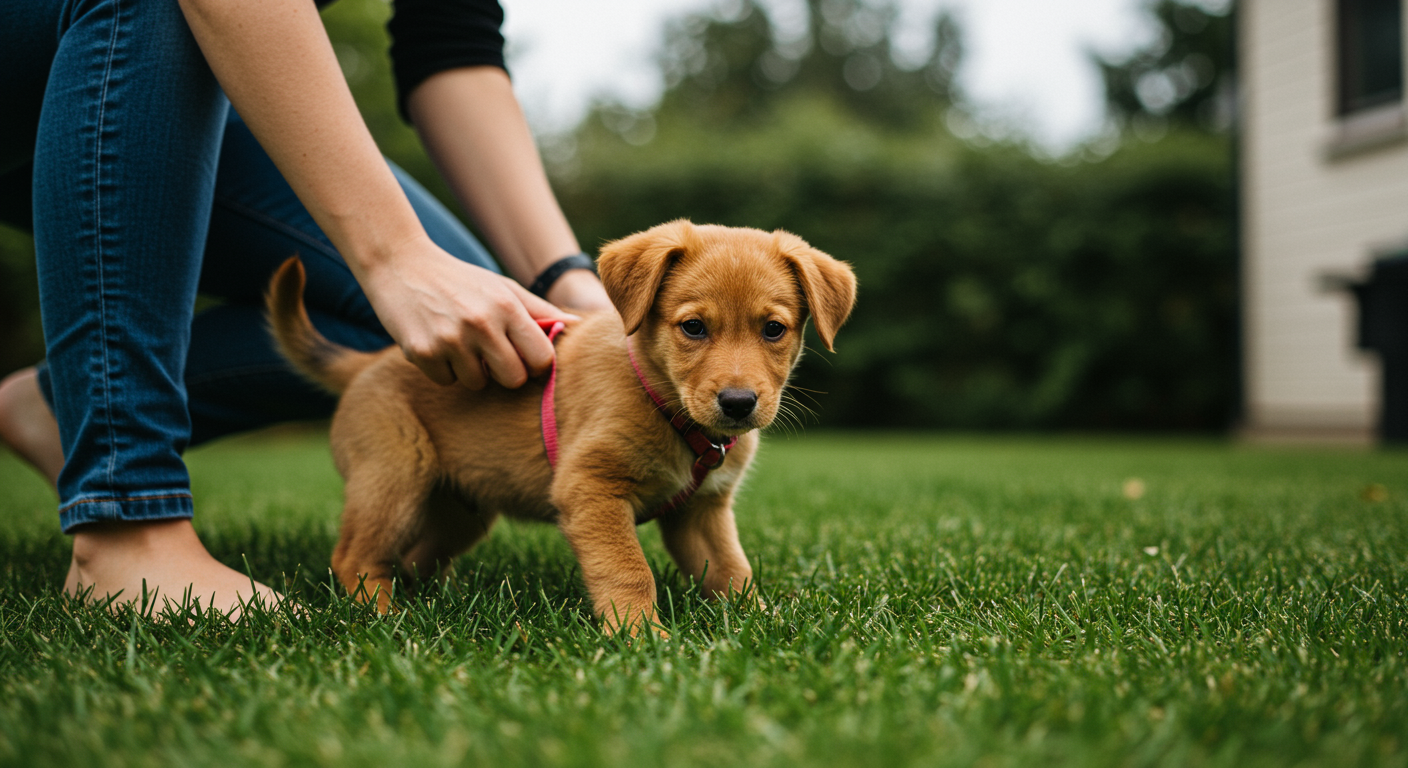Bringing home a new puppy is an incredibly joyous occasion! However, it also comes with the responsibility of teaching your new companion essential life skills. One of the most important, and often challenging, is potty training. This guide is designed to provide new puppy owners with a clear, step-by-step approach to successfully potty train their new furry friends. We'll cover everything from establishing a consistent schedule to handling accidents with patience and understanding.

Why Understanding Potty Training is Crucial for Your New Puppy
Potty training is more than just teaching your puppy where to eliminate; it's about establishing good habits and building a strong bond based on trust and positive reinforcement. A well-potty-trained puppy is a happier puppy, and a happier owner! Understanding the underlying reasons behind your puppy's behavior is key to successful training. For example, puppies have small bladders and less control than adult dogs, so frequent potty breaks are essential.
Essential First Steps for Puppy Potty Training
- Establish a Consistent Schedule: Puppies need to go out frequently. A good rule of thumb is to take your puppy out every 2-3 hours, especially after waking up, after meals, after playtime, and before bedtime.
- Choose a Designated Potty Spot: Take your puppy to the same spot each time. The scent will encourage them to eliminate there. Reward them immediately after they go potty in the designated spot.
- Supervise Your Puppy: When indoors, keep a close eye on your puppy for signs they need to go: circling, sniffing, squatting, or restlessness.
- Positive Reinforcement: Praise and reward your puppy with treats such as Wellness Training Treats or verbal praise, immediately after they eliminate in the correct spot.
Common Challenges & How to Overcome Them
- Accidents in the House: Accidents happen! If you catch your puppy in the act, calmly interrupt them and take them to their potty spot. Clean up accidents thoroughly with an enzymatic cleaner to remove the scent and prevent repeat offenses.
- Nighttime Potty Breaks: Puppies may need to go out at night. Adjust your bedtime and wake-up times, and gradually increase the time between nighttime potty breaks as your puppy matures.
- Regression: Potty training can sometimes regress due to stress, illness, or changes in routine. Stay patient, return to the basics, and consult with your vet if needed.
Tips for Success
- Crate Training (Optional): A crate can be a helpful tool for potty training, as dogs generally avoid eliminating in their sleeping area. Never use the crate as punishment.
- Use Potty Training Pads (Indoor): If you live in an apartment or cannot take your puppy out frequently, potty training pads like Amazon Basics Dog Training Pads can be helpful. Remember to transition to outdoor potty breaks as soon as possible.
- Be Patient: Every puppy learns at their own pace. Consistency and patience are key.
Building a Strong Bond with Your Puppy
Potty training is an excellent opportunity to build a strong, loving bond with your new puppy. Positive reinforcement, patience, and consistency will help your puppy thrive.
Recommended Products for New Owners
- Enzymatic Cleaner: Essential for cleaning up accidents and eliminating odors. (e.g., Nature's Miracle or similar product)
- Training Treats: Small, tasty treats for rewarding successful potty breaks. Example: Wellness Training Treats.
- Potty Training Pads (if needed): For indoor potty breaks, especially for puppies in apartments or with limited access to the outdoors.
- Crate (optional): A comfortable and safe space for your puppy.
- Leash and Collar: For outdoor potty breaks.
Quick Troubleshooting Guide
- Puppy isn't going potty outside: Make sure you're taking them out frequently, use positive reinforcement, and stay patient.
- Puppy is having accidents frequently: Rule out any medical issues, and adjust the potty break schedule.
- Puppy is eating their stool: This can be caused by several reasons; consult with your vet for further advice.
Next Steps in Your Pet Parenthood Journey
Potty training is just the beginning! With patience, consistency, and a lot of love, you and your puppy can build a wonderful life together.
Remember that every puppy is different. If you are struggling with potty training, consider consulting with a professional dog trainer or your veterinarian for personalized advice.